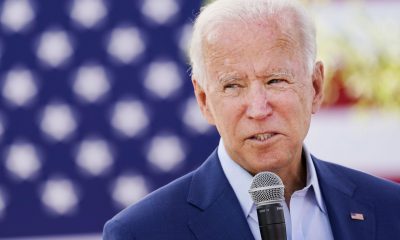Africa
Rwandan genocide suspect arrested in S.Africa, to face extradition hearing
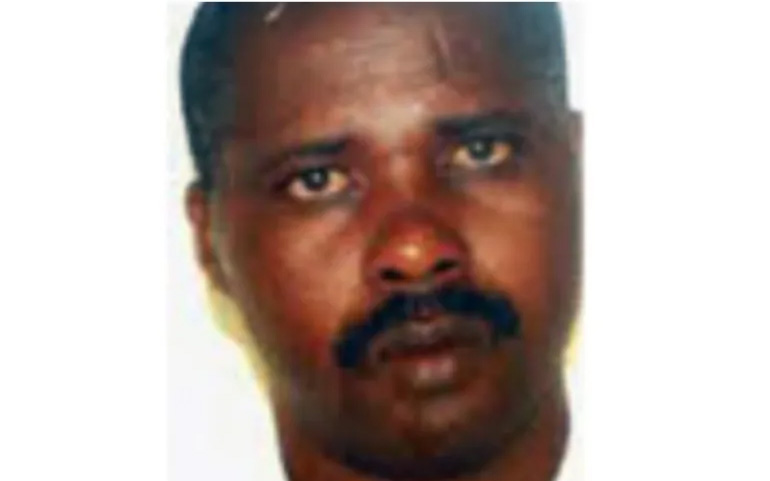
Rwandan genocide suspect arrested in S.Africa, to face extradition hearing
A Rwandan man accused of ordering the killing of some 2,000 Tutsis who were seeking refuge in a church during the 1994 genocide has been arrested in South Africa, a UN war crimes tribunal and South African police said on Thursday.
Former police officer Fulgence Kayishema had been on the run since 2001, when the International Criminal Tribunal for Rwanda (ICTR) indicted him for genocide over his role in the destruction of the Nyange Catholic Church in Kibuye Prefecture.
“His arrest ensures that he will finally face justice for his alleged crimes,” said Serge Brammertz, prosecutor at the International Residual Mechanism for Criminal Tribunals (IRMCT), which has replaced the ICTR since it wound up in 2008.
An elite South African police unit known as the Hawks said its officers had arrested Kayishema, who was living under the false name Donatien Nibashumba, at a grape farm in Paarl, in Western Cape province, on Wednesday.
Kayishema will stay in custody and appear in Bellville Magistrate’s court on Friday, pending his extradition to Rwanda, the unit said in a statement.
READ ALSO:
- OAU student’s murder: Adedoyin, 6 others know fate May 30
-
Policewoman challenges her alleged detention over resignation
-
Health workers begin nationwide indefinite strike
Stéphane Dujarric, spokesperson for U.N. Secretary General Antonio Guterres, said the arrest sent a powerful message to those who commit crimes like Kayishema’s.
“Ending impunity is essential for peace, security and justice,” he said in a statement.
In her first comment on the arrest, Rwandan government spokesperson Yolande Makolo tweeted: “Finally.”
An estimated 800,000 ethnic Tutsis and Hutu moderates were killed during Rwanda’s genocide, orchestrated by an extremist Hutu regime and meticulously executed by local officials and ordinary citizens in the rigidly hierarchical society.
“Seeing these people arrested brings healing to the survivors,” said Naphtal Ahishakiye, executive secretary of Ibuka, an umbrella group representing survivors.
Kayishema has been on the U.S. State Department’s wanted list under the Rewards for Justice Programme, with a $5 million reward offered for his arrest.
Brammertz said the investigation that led to his arrest spanned multiple countries in Africa and beyond, and was made possible through the support of South African authorities.
In May 2020, another mastermind of the genocide, Felicien Kabuga, was arrested in France after 26 years on the run.
Kayishema’s arrest means there are now only three fugitives indicted by the international tribunal whose whereabouts remain unknown, though Makolo said Rwanda considers that a greater number of suspects have yet to be caught.
“Nearly 30 years later, we have a long list of Rwandan genocide fugitives still at large in several countries around the world,” she told Reuters.
“We will continue to work with partner states and institutions to ensure that they are held to account.” (Reuters/NAN)
Africa
JUST IN: Plane carrying 19 people crashes on takeoff in Nepal
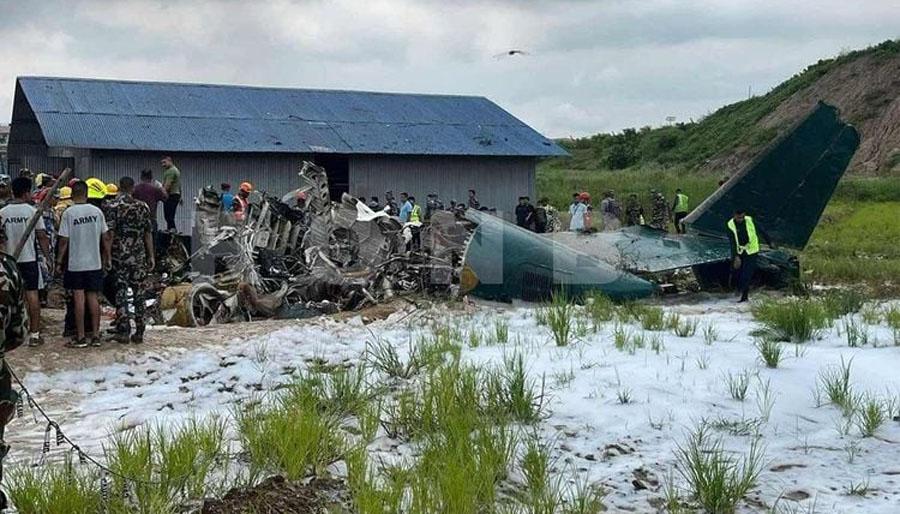
JUST IN: Plane carrying 19 people crashes on takeoff in Nepal
A tragic accident occurred in Kathmandu, Nepal, on Wednesday morning, when a Saurya Airlines passenger plane carrying 19 people crashed during takeoff, erupting into a massive fire.
Emergency responders swiftly sprang into action, battling to extinguish the blaze and rescue those on board.
The incident happened at approximately 11:15 am local time (0530 GMT), according to a statement released by Nepal’s military.
“Rescue work is going on” with the army’s quick response team lending assistance, the statement added.
Further details were “still being confirmed”, Kathmandu airport general manager Jagannath Niroula told AFP.
The Kathmandu Post newspaper said 19 people including air crew were aboard the flight.
News portal Khabarhub reported that the airplane had caught fire after skidding on the runway and was “releasing a significant plume of smoke”.
The plane was en route to Pokhara, an important tourism hub in the Himalayan republic.
Saurya Airlines exclusively flies Bombardier CRJ 200 jets, according to its website.
Nepal’s aviation sector has experienced rapid growth, facilitating transportation to remote regions and catering to adventure seekers.
READ ALSO:
- We increased interest rates 26.75% to stem inflation – Cardoso
- Nigerians have right to protest, Amnesty International tells FG
- Police arrest fleeing killer of Brigadier General in Abuja, recover pistol
However, this expansion has been marred by a poor safety record, attributed to inadequate training and maintenance.
As a result, the European Union has imposed a ban on Nepali airlines from operating in its airspace.
The country’s challenging terrain has further exacerbated its struggles with aviation safety, making it a pressing concern.
The Himalayan country has some of the world’s trickiest runways to land on, flanked by snow-capped peaks with approaches that pose a challenge even for accomplished pilots.
The weather can also change quickly in the mountains, creating treacherous flying conditions.
Nepal’s last major commercial flight accident was in January 2023, when a Yeti Airlines service crashed while landing at Pokhara, killing all 72 aboard.
That accident was Nepal’s deadliest since 1992, when all 167 people aboard a Pakistan International Airlines plane died when it crashed on approach to Kathmandu airport.
Earlier that year a Thai Airways aircraft had crashed near the same airport, killing 113 people.
Authorities have yet to release the identity of those aboard.
JUST IN: Plane carrying 19 people crashes on takeoff in Nepal
Africa
Dozens arrested in Uganda anti-government protests

Dozens arrested in Uganda anti-government protests
Dozens of people have been detained in the Ugandan capital Kampala after joining scattered anti-corruption protests in defiance of an official ban.
Lawyers said around 60 people, including a prominent TV presenter and three young protest leaders, were hurriedly brought before courts and remanded in custody following a march on the country’s parliament on Tuesday.
President Yoweri Museven, who has ruled Uganda for almost four decades, had warned before the event that protesters were “playing with fire”.
The march was organised on social media amid anger over long-running allegations of corruption involving several high-profile public officials.
The protests were partly inspired by demonstrations last month in neighbouring Kenya which forced President William Ruto to drop planned tax rises.
Police previously announced that they had refused to give permission for the march and would not allow any demonstration that threatened Uganda’s “peace and security”.
On Tuesday, riot officers were seen manning roadblocks, while members of the security forces sealed off roads and stood guard around the parliament building.
Pictures showed marchers holding signs that read “Stop corruption” and calling the parliament a “den of thieves”. Another said: “We are peaceful protesters”.
READ ALSO:
- Northern group attacks Reps Minority Caucus for demanding Nnamdi Kanu release
- Police rescue 10 pregnant women from Akwa Ibom baby factory
- FG should back Dangote Refinery as other nations support their own industrialists – Femi Otedola
Others showed protesters being manhandled by police and pushed into the back of riot vans.
“We are tired of corruption,” protester Samson Kiriya told AFP news agency through the bars of a van after being arrested.
Those detained included well-known television and radio presenter Faiza Salima as well as three protest organisers – George Victor Otieno, Kennedy Ndyamuhaki, and Aloikin Praise Opoloje.
Bernard Oundo, president of the Uganda Law Society, said one hearing saw 50 people charged.
“This was a rushed trial. They were arrested and taken to court in a very short time and remanded to prison without securing them bail,” he said.
“We will ensure these people receive justice.”
On the eve of the march, Uganda’s main opposition leader, Bobi Wine, said security forces had besieged the Kampala headquarters of his National Unity Platform party.
He said some of his party officials had been “violently arrested” and that the offices had been turned into a “military barracks”.
Writing on X following the march, Mr Wine, whose real name is Robert Kyagulanyi, said: “Salutations to all who have courageously marched and are still marching against corruption and misrule – even in the face of very brutal actions by the military and police!
“The cowards have been picking up young people whose only crime is lifting up a placard.”
He added that legal and welfare teams would be made available to those who needed them.
Earlier this year, the UK and US imposed sanctions on a number of Ugandan officials, including parliament speaker Anita Among and three former or serving ministers, over alleged involvement in corruption.
Dozens arrested in Uganda anti-government protests
Africa
Kenya: Court stops police ban on Gen Z protests

Kenya: Court stops police ban on Gen Z protests
The High Court of Kenya has suspended the National Police Service’s (IG) ban on protests by Kenyan youths (Gen Z). The ban was issued by IG Douglas Kanja.
Justice Bahati Mwamuye of the Milimani High Court declared the application challenging the ban urgent. The case will be prioritized.
“Pending the hearing on 18/07/2024, a conservatory order suspending the National Police Service’s ban on demonstrations in Nairobi Central Business and nearby areas is issued,” the ruling stated.
The judge restrained the acting IG from enforcing his decision dated 17th July 2024. This order also applies to all other personnel in the National Police Service (NPS) or those supporting them.
This suspension remains until the case is heard on July 18. The judge also directed IG Kanja to communicate these orders to all NPS officers.
READ ALSO:
- LASU, UNILAG students win big at MSS undergraduate essay competition
- Socialite accused of faking birth of twins appears in court
- 14 suspected killers of Kwara monarch for arraignment July 30
“The Acting Inspector-General of Police must circulate official communication of these orders to all NPS officers and the general public by the end of 19/07/2024. Evidence of this must be filed in court,” the ruling added.
This order followed a petition by Katiba Institute against the State Law Office after the NPS banned planned protests in Nairobi CBD and surrounding areas.
Acting IG Douglas Kanja cited security concerns and previous disruptions as the reasons for the ban. He mentioned that since the protests began in June, there have been significant losses, injuries, and damage to property and businesses.
“Criminals have infiltrated the protesting groups, causing disorder and destruction. For national security, we have credible intelligence that organized criminal groups plan to use these protests for attacks, including looting,” said Kanja.
The acting IG highlighted the lack of leadership within the Gen Z protests, making it hard to enforce safety protocols. Hence, no demonstrations will be allowed in Nairobi CBD and its surroundings until further notice to ensure public safety.
Kenya: Court stops police ban on Gen Z protests
-

 News3 days ago
News3 days agoNLC can’t withdraw from protest it didn’t organise – Ajaero
-

 News3 days ago
News3 days agoMinimum wage: Akpabio says domestic workers can’t earn less than N70,000
-

 News1 day ago
News1 day agoIslamic scholars warn parents, schools against skipping Primary 6
-
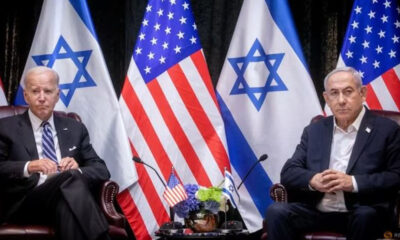
 International1 day ago
International1 day agoNetanyahu, Biden hold talks over tense Gaza ceasefire
-

 News3 days ago
News3 days agoFG unveils training programme for 1,000 Nigerians in AI, blockchain
-

 metro2 days ago
metro2 days agoNERDC Executive Secretary Prof Ismail Junaidu slumps, dies
-

 metro3 days ago
metro3 days agoPastor remanded for allegedly defiling teenager, attempting abortion
-
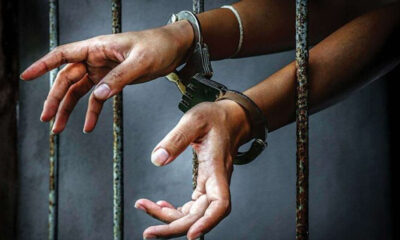
 metro3 days ago
metro3 days agoMan, 24, jailed 14 years for raping 6-year-old girl in Ekiti



